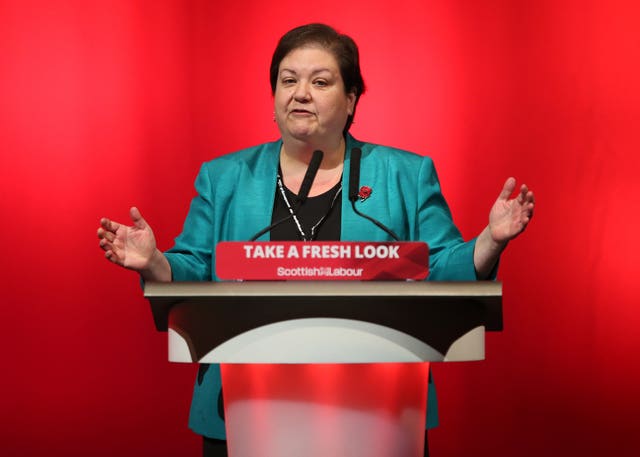The SNP’s incoming leader must “clear out the rot” within the party, Scottish Labour warned.
Scottish Labour deputy leader Jackie Baillie has urged Nicola Sturgeon’s successor to lead with “transparency and openness” amid controversy around the SNP’s membership numbers.
It comes as figures revealed by the SNP showed the party had lost 30,000 members in just over a year – a claim it had previously denied.
Earlier this month, the party confirmed it now has 72,186 members who were eligible to vote.
And as leadership candidates Humza Yousaf, Kate Forbes and Ash Regan wait to find out if they have been chosen by SNP members as the new leader, Ms Baillie accused the party of “secrecy and spin”.
Her comments come as Police Scotland probes the party’s finances, specifically how £600,000 of campaign funds had been spent.
She also called for questions to be answered into the two ferries which are now five years late, and the cost has nearly tripled to £300 million.
Ms Baillie said: “The next SNP leader needs to clear out the rot festering in this party.
“After 16 years in government, the SNP have become arrogant and out of touch, with an increasingly loose relationship with the truth.

“Sunlight is the best disinfectant – we need real transparency and openness to end the culture of cover-up at the heart of the SNP.”
An SNP spokesperson said: “The new SNP leader will be focused on delivering the priorities of the people of Scotland, including tackling the Tory cost-of-living crisis, improving public services and strengthening the economy.
“The pro-Brexit, pro-cuts Labour Party has become little more than a pale imitation of the Tories under Keir Starmer. It’s completely out of touch with Scotland and has nothing to offer.
“With no change on offer at Westminster, it’s clear independence is the only way to escape Westminster control and deliver real change for a strong, fair and prosperous future.”
On Monday afternoon, the next SNP leader will be announced following a five-week campaign.
They will then be elected as first minister in Holyrood on Tuesday, subject to parliamentary approval and then sworn in at the Court of Session the following day.






